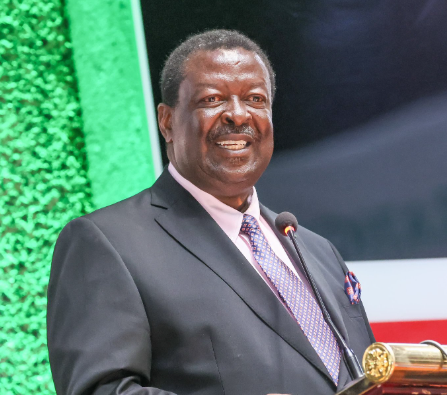

The government has created new work permits for foreigners as it seeks to expand Nairobi as the multilateral hub for the East African region and the continent.
Through a gazette notice issued on December 16, 2024, Prime Cabinet Secretary and Acting Cabinet Secretary for Interior and National Administration Musalia Mudavadi outlined amendments that aim to strengthen the current regulations on work permits.
This, he noted, will promote national interests through enhanced digital jobs, smooth regional integration, fairness, and increased foreign exchange for the government while ensuring Kenya remains an attractive international business and financial hub.
As part of making Kenya a diplomatic hub, parts of the amendments have been made to allow for the introduction of a new class of permit Class 'P'.
It will be issued to the staff of the United Nations, Diplomatic Missions, Inter-Governmental Organizations like the Bretton Wood Institutions and International Non-Governmental Organizations accredited to or based in neighbouring hardship countries to enable them and their families to reside in Kenya.
The amendments aim to modernize and streamline work permit regulations and elevate Kenya’s role as a multilateral centre.
The newly created Class ‘R’, is a permit issued to a citizen of a Member State of the East African Community who is not a Prohibited Immigrant and who intends to reside or engage in employment, business trade, or profession.
This keeps in line with the already established agreements where citizens of member countries of the East African Community have a right to live and work in any of the member states.
This class ‘R’ work permit intends to consolidate all East African applicants together irrespective of their description – investors, professionals, skilled employees, unskilled employees, traders, farmers, and manufacturers.
The key qualification will be proof of citizenship of an East African Community State and they will not be expected to pay anything.
Mudavadi said the new work permits will enhance progressive reforms, as Kenya continues to champion regional cooperation, economic opportunity, and global engagement, making it a hub where partnerships, talent, and investment can flourish.
The Statement further explained that the new permits are partly a result of the government’s engagement following numerous requests that have come in from various bodies including the United Nations Office in Nairobi.
Those eligible for the new permit (P) will pay a lower fee but to be charged in United States of America dollars.
Further as part of the amendments, existing classes including Class (I) proposed changes have been made to exclude persons working for approved charitable organizations who have been moved to Class (Q).
This permit was initially issued to a person who is a member of an institution registered under the society’s Act, who is engaged as a missionary, and whose activities are directly involved in preaching and or the conduct of religious worship and rituals.
“The Church has been vocal in seeking a reversal of the decisions to raise fees from Ksh. 5,000 to Ksh. 50,000 per year insisting that their missionary priests, brothers and sisters are not salaried and offer services to our society’s most needy and in some remote areas.” Read part of the statement.
“The amendment in Class (I) aims to reduce the number of persons falling under this class and reduce the fee charged from Ksh. 50,000 to Ksh. 20,000. While the fee charged is reduced, the number of beneficiaries will also reduce. The other previous members of this class are moved to Class (Q) where they will pay an increased fee of Ksh. 100,000 per year," Mudavadi said.












